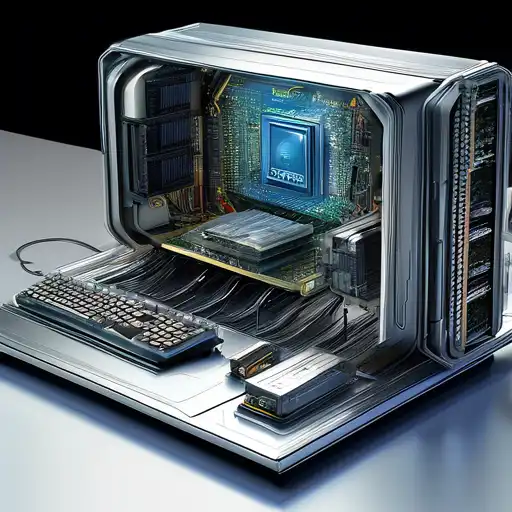Introduction to the Evolution of Computer Hardware
The landscape of computer hardware design is undergoing a transformative shift, driven by the relentless pursuit of efficiency, performance, and sustainability. As we look towards the future, it's clear that innovations in materials, architecture, and manufacturing processes are set to redefine what's possible in computing technology.
Emerging Trends in Hardware Design
One of the most significant trends is the move towards more energy-efficient and compact designs. With the advent of quantum computing and nanotechnology, the boundaries of hardware design are being pushed further than ever before. These advancements promise to deliver unprecedented processing power while minimizing environmental impact.
The Role of Artificial Intelligence
Artificial Intelligence (AI) is playing a pivotal role in shaping the future of computer hardware. AI-driven design tools are enabling engineers to optimize hardware configurations for specific tasks, leading to more specialized and efficient computing solutions. This synergy between AI and hardware design is accelerating the development of next-generation computing devices.
Key Innovations to Watch
Several key innovations are poised to make a significant impact on the future of computer hardware design. These include:
- 3D-printed electronics, which allow for more complex and customized hardware designs.
- Photonic computing, leveraging light instead of electricity for faster and more energy-efficient data processing.
- Self-healing materials, which can automatically repair damage to hardware components, extending their lifespan.
Sustainability in Hardware Design
Sustainability is becoming a cornerstone of modern hardware design. Manufacturers are increasingly adopting eco-friendly materials and processes to reduce the environmental footprint of their products. From biodegradable components to energy-efficient manufacturing techniques, the industry is making strides towards a greener future.
Challenges and Opportunities
Despite the exciting advancements, the future of computer hardware design is not without its challenges. Issues such as thermal management, material limitations, and the need for global standards in emerging technologies present hurdles that must be overcome. However, these challenges also offer opportunities for innovation and collaboration across the tech industry.
Conclusion: A Bright Future Ahead
The future of computer hardware design is bright, with endless possibilities for innovation and improvement. As we continue to push the boundaries of technology, the next generation of hardware will undoubtedly transform our digital world in ways we can only begin to imagine. For those interested in the cutting edge of technology, staying informed about these developments is essential.
For more insights into the latest trends in technology, be sure to explore our technology trends section.
